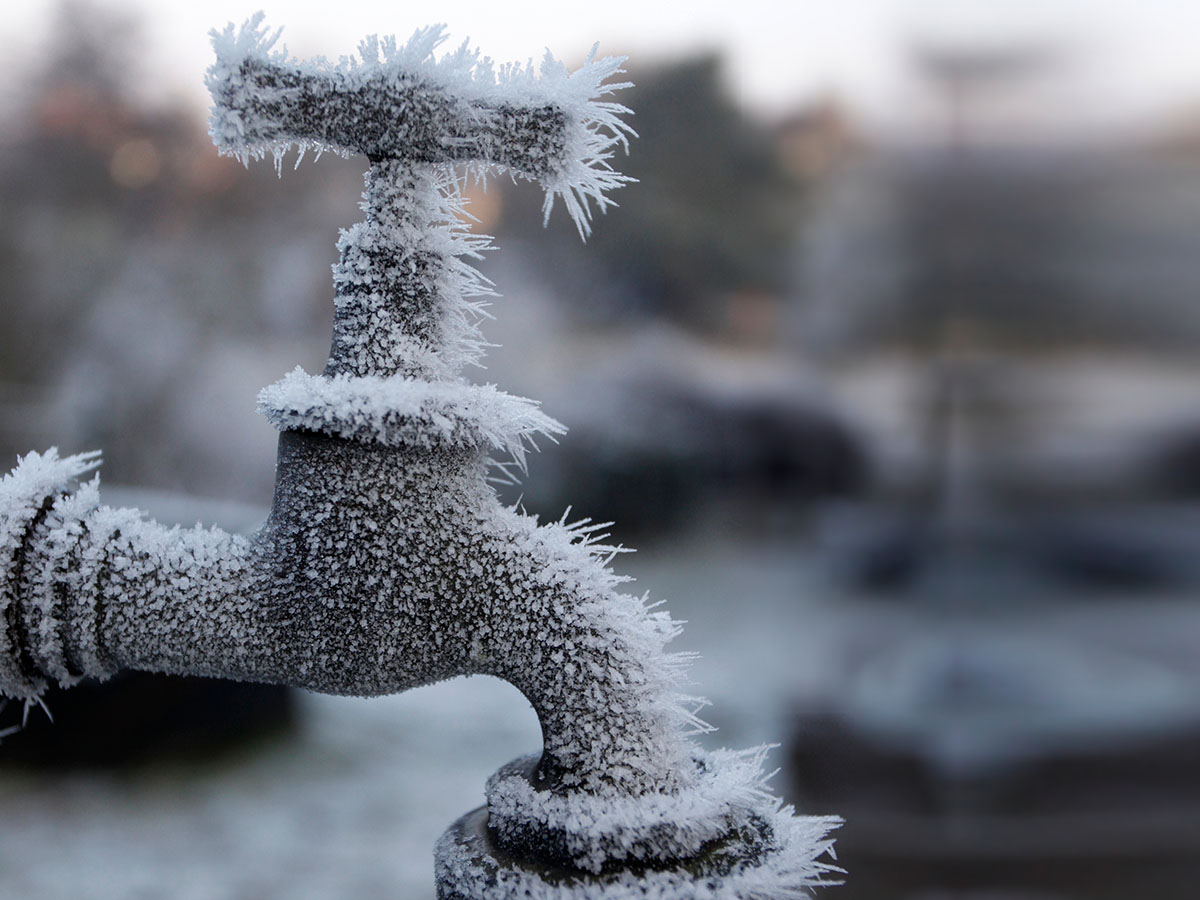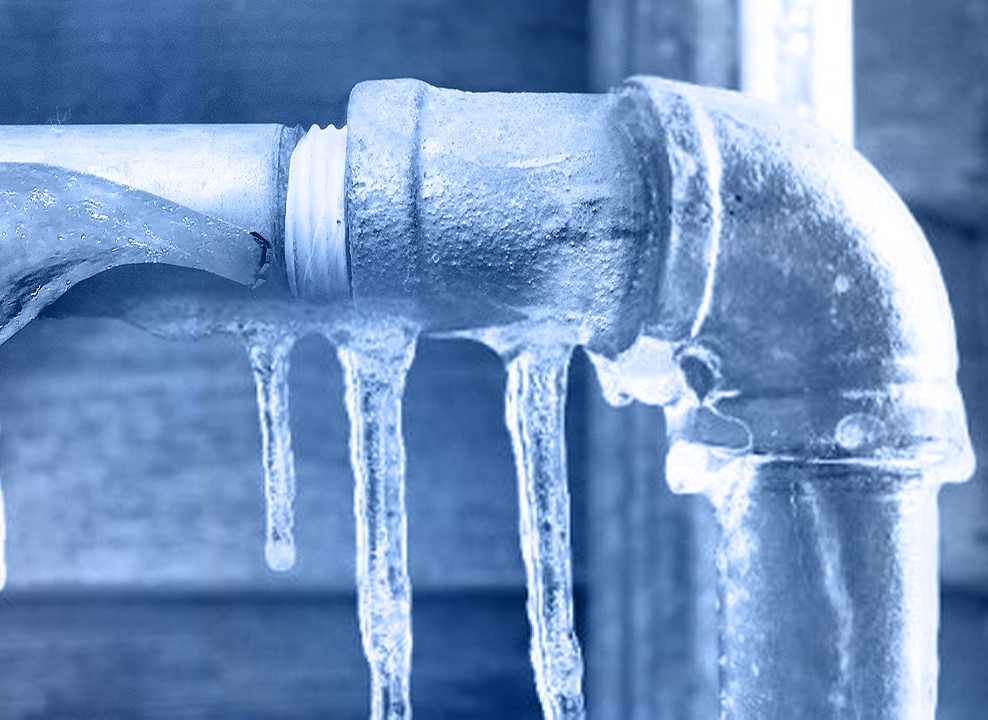Important Tips for Preventing Frozen Pipes in Winter Conditions
Important Tips for Preventing Frozen Pipes in Winter Conditions
Blog Article
We have noticed this post on How to Prevent Your Pipes From Freezing listed below on the net and figured it made good sense to write about it with you on this site.

Winter can wreak havoc on your pipes, specifically by freezing pipelines. Below's how to stop it from happening and what to do if it does.
Introduction
As temperatures decline, the danger of icy pipelines boosts, possibly leading to costly repair work and water damages. Recognizing just how to stop icy pipelines is crucial for homeowners in cool environments.
Comprehending Frozen Pipelines
What causes pipelines to freeze?
Pipelines ice up when exposed to temperatures listed below 32 ° F (0 ° C) for prolonged durations. As water inside the pipes freezes, it increases, putting pressure on the pipeline walls and potentially triggering them to break.
Risks and damages
Frozen pipes can bring about supply of water interruptions, property damage, and expensive repairs. Burst pipes can flood homes and create extensive architectural damages.
Indications of Frozen Water Lines
Determining frozen pipelines early can stop them from bursting.
Exactly how to recognize icy pipelines
Search for lowered water flow from taps, unusual odors or sounds from pipes, and visible frost on subjected pipelines.
Prevention Tips
Shielding vulnerable pipelines
Wrap pipelines in insulation sleeves or utilize warmth tape to secure them from freezing temperatures. Concentrate on pipelines in unheated or outside locations of the home.
Heating strategies
Keep indoor spaces adequately heated up, specifically locations with plumbing. Open closet doors to permit warm air to distribute around pipes under sinks.
Shielding Outdoor Plumbing
Garden hose pipes and outside taps
Separate and drain pipes yard tubes prior to winter. Install frost-proof spigots or cover outdoor faucets with protected caps.
What to Do If Your Pipelines Freeze
Immediate actions to take
If you believe icy pipelines, keep faucets open to alleviate pressure as the ice thaws. Utilize a hairdryer or towels soaked in hot water to thaw pipelines slowly.
Long-Term Solutions
Structural changes
Take into consideration rerouting pipelines away from exterior walls or unheated locations. Include added insulation to attic rooms, cellars, and crawl spaces.
Updating insulation
Buy top quality insulation for pipelines, attics, and walls. Proper insulation helps preserve regular temperature levels and reduces the danger of icy pipes.
Final thought
Preventing frozen pipes calls for proactive steps and fast feedbacks. By understanding the causes, indications, and safety nets, home owners can protect their plumbing during cold weather.
Helpful Tips to Prevent Frozen Pipes this Winter
UNDERSTANDING THE BASICS: WHY PIPES FREEZE AND WHY IT’S A PROBLEM
Water freezing inside pipes is common during the winter months, but understanding why pipes freeze, and the potential problems it can cause is crucial in preventing such incidents. This section will delve into the basics of why pipes freeze and the associated problems that may arise.
THE SCIENCE BEHIND FROZEN PIPES
When water reaches freezing temperatures, it undergoes a physical transformation and solidifies into ice. This expansion of water as it freezes is the primary reason pipes can burst. As the water inside the pipe freezes, it expands, creating immense pressure on the walls. If the pressure becomes too great, the pipe can crack or rupture, leading to leaks and water damage.
FACTORS THAT CONTRIBUTE TO PIPE FREEZING
Low Temperatures: Extremely cold weather, especially below freezing, increases the risk of pipes freezing. Uninsulated or Poorly Insulated Pipes: Pipes located in unheated areas, such as basements, crawl spaces, or attics, are more prone to freezing. Insufficient insulation or lack of insulation altogether exacerbates the problem. Exterior Wall Exposure: Pipes running along exterior walls are susceptible to freezing as they encounter colder temperatures outside. Lack of Heating or Temperature Regulation: Inadequate heating or inconsistent temperature control in your home can contribute to frozen pipes. PROBLEMS CAUSED BY FROZEN PIPES
- Pipe Bursting: As mentioned earlier, the expansion of water as it freezes can cause pipes to burst, resulting in significant water damage.
- Water Damage: When pipes burst, it can lead to flooding and water damage to your property, including walls, ceilings, flooring, and personal belongings.
- Structural Damage: Prolonged exposure to water from burst pipes can compromise the structural integrity of your home, leading to costly repairs.
- Mold and Mildew Growth: Excess moisture from water damage can create a favorable environment for mold and mildew growth, posing health risks to occupants.
- Disrupted Water Supply: Frozen pipes can also result in a complete or partial loss of water supply until the issue is resolved.
WHY CERTAIN PIPES ARE MORE PRONE TO FREEZING
- Location: Pipes located in unheated or poorly insulated areas, such as basements, crawl spaces, attics, or exterior walls, are at higher risk of freezing.
- Exterior Pipes: Outdoor pipes, such as those used for irrigation or exposed plumbing, are particularly vulnerable to freezing as they are directly exposed to the elements.
- Supply Lines: Pipes that carry water from the main water supply into your home, including the main water line, are critical to protect as freezing in these lines can affect your entire plumbing system.
- Underground Pipes: Pipes buried underground, such as those connected to sprinkler systems or outdoor faucets, can be susceptible to freezing if not properly insulated.
https://busybusy.com/blog/helpful-tips-to-prevent-frozen-pipes-this-winter/

I hope you enjoyed our article on How To Avoid Freezing Pipes. Thanks for spending some time to browse our piece of content. In case you enjoyed reading our blog entry kindly be sure to share it. Thanks a bunch for being here. Come back soon.
This Resource Report this page